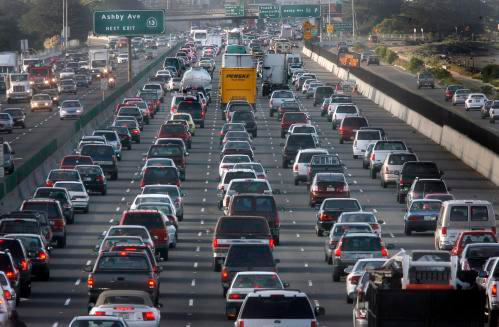How long does it take you to get to work? Do you drive, take a bus, train or subway?
Nationally, the average commute time for small business employees is 28.7 minutes, according to a new survey by TriNet, a cloud-based provider of HR services. For a person with 250 work days in a year, that's about 14,300 minutes, or 239 hours spent going to, and returning from, work. That's ten 24-hour days, but it's even longer for those in the cities at the top of TriNet's list.
January's TriNet SMBeat report features an in-depth analysis of employee commute times throughout the United States, including both demographic and geographic trends. A key finding of the report is that the Washington, D.C. metro area has the longest commute time across TriNet's clients, averaging 31.2 minutes. It is followed closely by New York, Houston, Boston and Los Angeles.
The shortest commute time was in San Diego, at 24.7 minutes, followed by Austin, Miami, Dallas and Denver.
Long commute times can be a burden on workers and affect employee happiness and productivity. The length of time an employee spends commuting is impacted by a number of factors. Geographical characteristics like population density cause increased road congestion and subsequently increase commute times.
Also, demographic factors such as earnings, marital status and gender contribute to the willingness of employees to spend time getting to work. Employers can alleviate the stress caused by long commute times by offering perks, such as flexible start times, telecommuting, and transit benefits. These perks ultimately impact the bottom line by reducing costs associated with employee turnover and poor employee productivity.
- Among major metro areas, San Diego came in with the shortest commute time, averaging 24.7 minutes. The Atlanta, San Francisco Bay and Chicago metro areas have an average one way commute time of 28.7 minutes.
- Across the TriNet population, income is positively correlated with commute time. Workers that earn less than $50,000 per year commute 27 minutes on average, while those earning more than $250,000 per year commute 31 minutes on average.
- Populations in certain geographies have a negative correlation. In Los Angeles, lower income workers commute for a longer duration, 22.5 minutes for the higher wage earners versus 45.9 minutes for earners of lower wages. Married workers with growing families often seek larger homes in the suburbs outside of metro areas, adding to their commute time, which is an average of 2.5 minutes longer than single workers.
- On average, men commute 7% longer than women. We believe the gender salary gap may drive this discrepancy in part due to the correlation between larger incomes and longer commute times.
- Baby Boomers aged 49 years and older have the longest commute time with an average of 31.3 minutes.
- Millennials between 22 and 31 years old have on average the lowest salaries and lowest commute times. Research frequently finds work-life balance to be an important factor for Millennials.
- Shorter commute times can contribute to less daily stress and we believe this age group therefore values them.
In addition to the findings on commute times, SMBeat indicates that 2014 began on a high note with net job growth of 1.26% across TriNet's clients in January. In addition, growth for the tech sector continued. Nationally, it saw 1.80% net job growth, increasing from last month's growth of 1.49%. New York continues to lead the tech sector with 2.57% net job growth. New York surpassed Denver-Boulder, Los Angeles and Silicon Valley, which saw 2.46%, 2.40% and 2.09% net job growth, respectively.
Thanks for reading CPA Practice Advisor!
Subscribe Already registered? Log In
Need more information? Read the FAQs
Tags: Small Business




